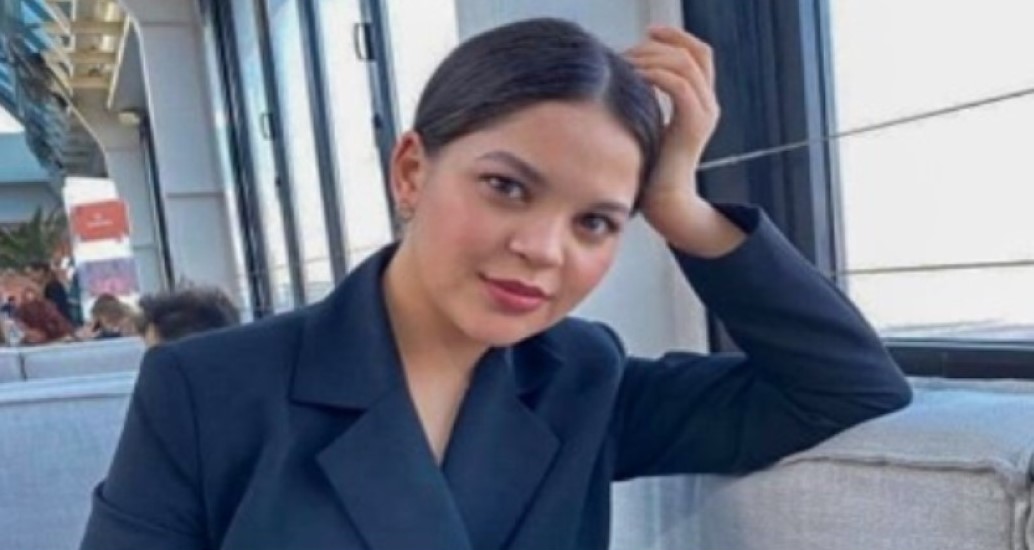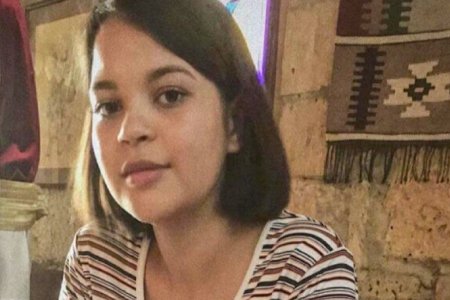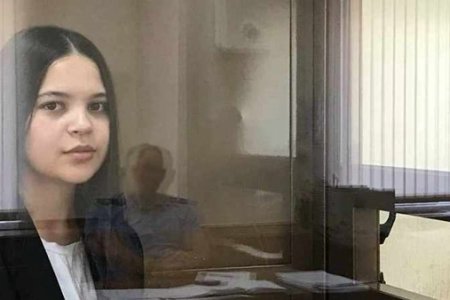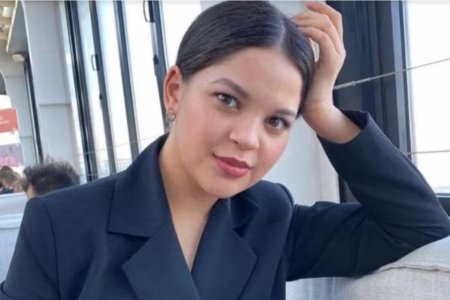
25-year-old Leniye Umerova has been held prisoner in Russia for the past four months, with the enforcement bodies in North Ossetia coming up with one implausible pretext after another. The real reason is probably that the young Crimean Tatar left Crimea soon after Russia’s invasion and has refused Russian citizenship.
Leniye was working as a marketing specialist in Kyiv, but needed to travel to occupied Crimea in early December 2022 to be with her father who is receiving treatment for cancer. Due to Russia’s full-scale invasion of Ukraine, there is no safe access to occupied Crimea from mainland Ukraine, so Leniye used a circuitous route, through Bulgaria, Romania, Georgia and then Russia and occupied Crimea. Travelling on the Tbilisi – Simferopol coach, she was detained during the night from 3-4 December 2022 at a checkpoint in Northern Ossetia on the Georgian-Russian border. She was told this was “for a further check and conversation”. The Russian border guards took her Ukrainian internal document, passport and her telephone. The Russians found photos on the telephone of military technology, although these were not photos that she had taken and were widely available on the Internet.)
Fabrication of pretexts for detaining Leniye seems to have begun immediately, with the border guards claiming that they would speak with her the following day, and sending her to the Sova Hotel outside the city. She was taken, by taxi, in that direction, but via a road which is off limits to foreigners, where the taxi was stopped by traffic police. She was charged with having ‘infringed the rules for crossing the Russian state border (Article 18.1 § 1 of Russia’s code of administrative offences). A local court found her guilty of this and fined her (the fairly small amount of) 2,000 roubles, as well as ordering her deportation. According to her father, there is no mechanism for organizing such expulsion, and she was simply sent to a temporary holding unit for foreign nationals.
Leniye did manage to phone her parents who found her a lawyer. The later finally succeeded in getting the deportation order revoked, with this meaning that there was no longer any requirement for her to be imprisoned in the temporary holding unit. The same court even noted that the young woman did not appear to present any danger to Russia.
She should have simply been released. Instead, she was seized by unidentified individuals as she left the unit. They put a bag over her head, forced her into a car and took her to a district in Vladikavkaz where they dumped her, just in time for a police car to turn up and demand that she come with them to the police station. She tried to find out why, with her question perhaps used as the pretext for accusing her of ‘disobeying the orders of an enforcement officer’. The Leninsky district court promptly ordered a 15-day term of administrative arrest, with a second, identical protocol over ‘disobedience’ drawn up almost immediately, supposedly because Leniye refused to give the officers her phone. A further 15-day sentence was imposed on 27 March, with Leniye taken to the temporary holding unit in Beslan.
On 9 April, yet another ‘disobedience’ protocol was drawn up, with the 15-day term of administrative arrest this time imposed by ‘judge’ Veronika Kolobkova, from the Sovietsky district court in Vladikavkaz.
Following serious treatment for cancer, Rezvan Umerov should have been resting at home with his family. Instead, he and his wife have been in Northern Ossetia for the past two months, endeavouring to secure their daughter’s release. He believes that they are trying to break his daughter, and does not understand why.
Leniye Umerova moved to mainland Ukraine in 2015, because of Russia’s invasion of her native Crimea. She finished school in Kyiv and then began studying at the Inorganic Chemistry Faculty of Kyiv Polytechnic. Until recently she worked as a marketing specialist for VOVK, a Ukrainian producer of women’s clothes.
She had previously returned once a year to visit her family, however that was before Russia’s full-scale invasion of Ukraine. The latter has made it dangerous for any Ukrainian citizen, especially one who had so clearly rejected Russia’s citizenship, to be in Russia or Russian-occupied parts of Ukraine. Olha Skripnik, Head of the Crimean Human Rights Group says that this string of administrative arrests are clearly indicative of politically motivated persecution. Russia has, on previous occasions, held Ukrainian citizens under administrative arrest, while concocting criminal charges, and international attention to Leniye Umerova’s effective abduction and illegal imprisonment is vital now, before any such charges appear.



